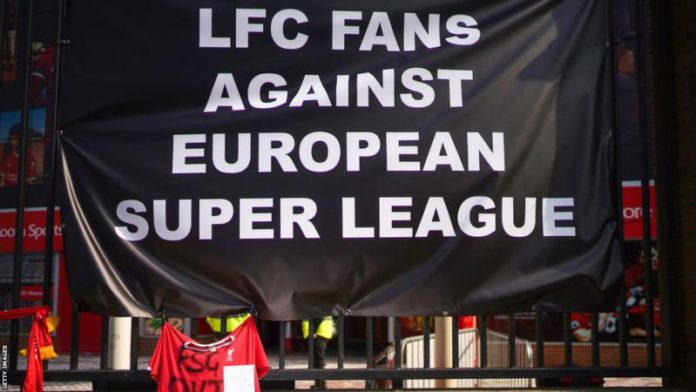The European Court of Justice will deliver its final verdict on the validity of the European Super League on 21 December.
It had been claimed by the ESL and its backers, A22, that Uefa and Fifa were breaking competition law by threatening to sanction clubs and players who joined the breakaway league.
But in a report released last December, the ECJ said the rules of football’s European and world governing bodies were “compatible with EU competition law”.
A final outcome was expected from the ECJ’s 15-strong Grand Chamber in the spring but this did not materialise.
The ruling in December will be a binding interpretation of European Union law, and once handed down, the case will then be referred back to the Madrid commercial court that will apply it to the facts of the Super League case.
Plans for the ESL caused a fallout across the football world when they were announced in April 2021.
The six Premier League sides that signed up to the project – Manchester United, Manchester City, Liverpool, Chelsea, Tottenham and Arsenal – quickly withdrew their support after a backlash from fans, football governing bodies and even government.
However, the plans have not been scrapped completely, with Real Madrid and Barcelona still pursuing the idea.
In July, Juventus, the third member remaining after 12 of the initial 15 clubs backed out within 72 hours of its launch, signalled their intention to quit the project.
After the ESL plans were announced, the Premier League clubs plus Atletico Madrid, Inter Milan and AC Milan were fined by Uefa, but action against Real Madrid, Barcelona and Juventus was halted during the legal process.

